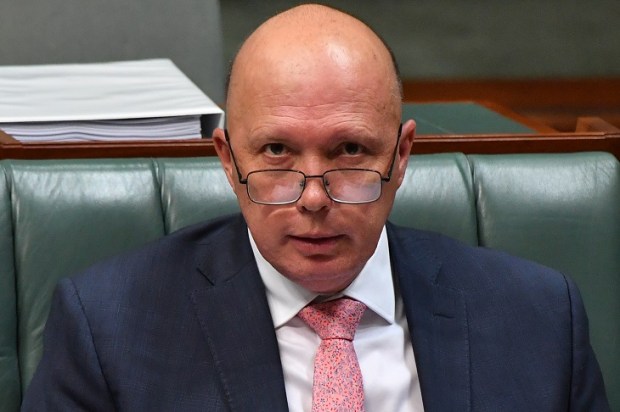Disinformation is a growing plague on our political house.
The deliberate propagation of false information, with the intent to deceive and influence political processes, saw its debut in the modern era in the 2016 US Presidential election.
An outfit known as the Internet Research Agency, based out of St Petersburg, spearheaded this effort.
But the practice is not restricted to hostile foreign states.
Domestic actors are starting to copy the tactics pioneered by Russia, weaponising falsehoods and distorting truth in order to undermine political opponents.
We have encountered one such vehicle recently, a website operated by the Open Australia Foundation titled “They Vote for You”.
The concept behind the website appears to be a noble one: creating transparency and accountability by showing the public the voting record of its federal elected representatives.
But the website, by design or otherwise, has been hijacked by a small group of activist users, who seek to misrepresent voting records in order to prosecute a political agenda.
The net result is not a better informed public. It’s a misinformed public.
Voting in Parliament is not always easy to distil into soundbites. There are both procedural and substantive votes. There are votes on amendments, votes on motions, and votes on legislation. And there is not usually consensus about the purpose of legislation.
The voting record of every member of parliament, on every division, is there for all to see on the Parliament House website.
The issue with They Vote for You is that the complex voting record of elected officials is being actively misrepresented, or more charitably grossly oversimplified, into a soundbite that serves a political purpose.
The website characterises politicians as having “voted very strongly for” or “very strongly against”. When you vote in parliament, it’s a yes or a no. There aren’t different degrees of support.
Rather than giving the names and detail of the actual bills, the website attempts to characterise the bills in highly subjective terms. There are no single bills “increasing housing affordability” or creating “a fast transition from fossil fuels to renewable energy” or “making more water from Murray-Darling Basin available”, but the website promotes the fiction that complex policy challenges can be addressed by a single piece of legislation.
But it is also downright misleading.
Senator Bragg chaired the Libs and Nats for Yes campaign, and was a strong proponent for marriage equality. But They Vote for You claims he “voted strongly against Indigenous and LGBTI rights”. He has written a book supporting indigenous constitutional recognition, but the website claims he is opposed to the Voice.
Dave Sharma has been consistently making the case for a transition to net zero by 2050 and more ambitious emissions reduction targets, yet is described by the website as having “voted strongly against a fast transition from fossil fuels to renewable energy”. The basis of this conclusion is a single and inconsequential amendment to a bill that was passed unanimously.
And somehow, having voted for the implementation of the Hayne royal commission recommendations, this means Mr Sharma “voted strongly against increasing consumer protections”. Go figure.
The website claims senators have voted for and against the Paris Climate Agreement. Another surprise! The Paris Climate Agreement is an international agreement, entered into by the executive. The Senate does not get a vote on it.
The website advertises itself as a source of transparency and integrity in politics, but instead makes assertions and characterisations which are misleading and deceptive.
The organisation behind the website, Open Australia, appears to have deductible gift recipient — DGR — status which means it can accept tax deductible donations.
This is despite the fact that DGR status is not permitted to underpin partisan political activities, which is what “They Vote For You” is all about.
By grossly and maliciously misrepresenting the voting records of parliamentarians, the site is engaged in seeking to influence the way electors vote. This means such communication should be authorised as required under the Electoral Act, yet there is no evidence of the required authorisations.
More information and more transparency is good for our political system and should be embraced.
But websites such as these do the exact opposite. They actively misinform and misrepresent, undermining the ability of the public to have an informed debate on the basis of agreed facts. Nothing could be worse for our democracy.
Andrew Bragg is a Senator for New South Wales and Dave Sharma is the Member for Wentworth.
Got something to add? Join the discussion and comment below.
Get 10 issues for just $10
Subscribe to The Spectator Australia today for the next 10 magazine issues, plus full online access, for just $10.
























Comments
Don't miss out
Join the conversation with other Spectator Australia readers. Subscribe to leave a comment.
SUBSCRIBEAlready a subscriber? Log in